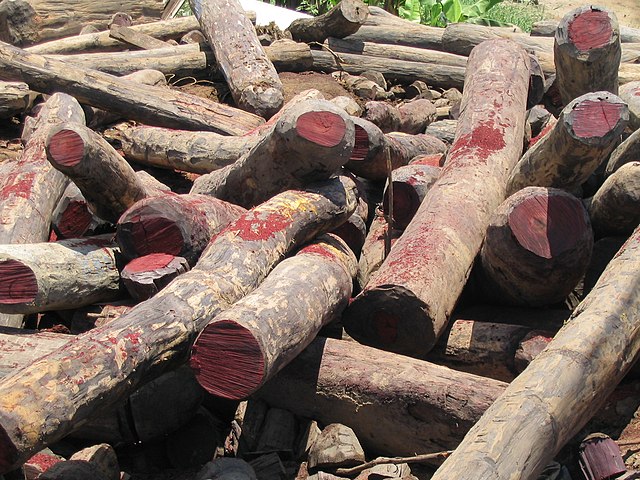The suspension, communicated in the Notification to Parties on June 8, concerns West African nations where Pterocarpus erinaceus, also known as Kosso, is found.
It is binding for all 184 CITES member states.
Rosewood is one of the most illegally harvested woods. Most of the global demand for it comes from China, where it is used to produce popular Ming dynasty-style furniture.
Over the past decade, West Africa has become China’s leading rosewood supplier, supplying 70% of the Chinese rosewood imports as of 2020.
The suspension was preceded by a decision from March 28, when the CITES Standing Committee requested the countries to either submit evidence that their rosewood exports are sourced sustainably, or issue a zero-export quota on the species.
These were to be sent by March 27.
According to CITES, Benin, Burkina Faso, Côte d’Ivoire, Ghana, Guinea, Niger, Senegal and Sierra Leone asked for their exports to be subjected to zero quotas.
Cameroon, Gambia, Guinea-Bissau and Mali applied to be allowed to continue extracting rosewood, but the evidence they supplied was found unsatisfactory.
Chad, Togo and the Central African Republic did not respond to the request.
CITES, therefore, recommended the countries suspend the rosewood trade and urged members to abide by the recommendation.
“Parties shall suspend commercial trade in specimens of the species Pterocarpus erinaceus from these seven range states with immediate effect,” says the notification.
It remains uncertain whether the measure will be enforced, however. Even if necessary legislation is introduced, there are concerns that the exports could continue unreported through smuggling or misdeclaration of logs as unprotected species.
Thus far, only Ghana took concrete measures in response to the recommendation, announcing that the issuance of rosewood trade permits would be halted from July 2.
In Sierra Leone, the biggest producer of rosewood in West Africa, suppliers seem to be unaware of the prospective ban.
“The thing you are telling me about, we didn’t hear about that,” a medium-scale rosewood logger known as Fredrick, operating in the Kono district in eastern Sierra Leone, told the OCCRP in a phone interview.
“But if they do it, wow, that means we are finished,” he added.
In Sierra Leone, logging is currently under a temporary ban, imposed every year for the duration of the rainy season.
The Ministry of Agriculture and Forestry did not immediately reply to OCCRP’s inquiry about how the country is planning to enforce the rosewood zero-export quota.
The international trade suspension is to remain in place until the concerned countries prove that the trade will be legal and sustainable.

